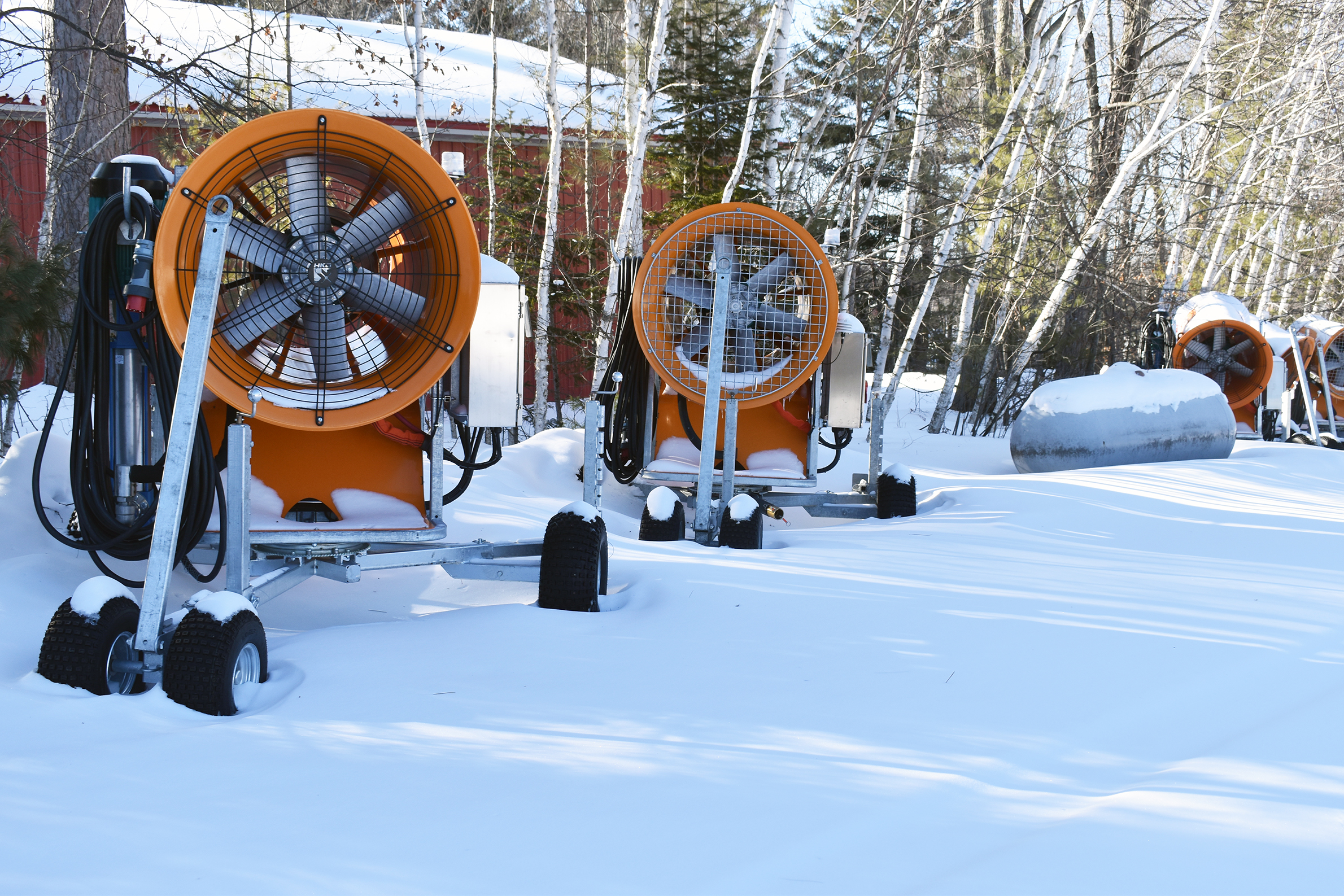The largest cross-country ski race in North America will take place later this month despite the lack of snow. However, this year’s 50th anniversary of the American Birkebeiner will not feature the time-honored winter marathon connecting the two Northwoods communities.
Instead, U.S. Birkebeiner Ski Foundation officials said during: live virtual briefing On Monday evening, the events will take place on a 10-kilometer loop made of artificial and accumulated snow.
Ben Popp, the foundation’s executive director, said it was a “Herculean effort” to schedule the races during a warmer-than-usual winter.
About 13,000 skiers signed up for the series of events taking place on February 21–25.
The week of events usually culminates in a 50km or 31-mile race that starts in Cable and ends in downtown Hayward. Since there is no snow on the ground, skiers will instead race on snow that has been produced or accumulated in a loop around the Birkie trailhead in Cable.
On Saturday morning, only the best skiers will take part in the 50-kilometer skating race, with approximately 275 men and women taking part.
“We hope to have plenty of participants and spectators who can really cheer on this great group. We will have many players taking part in the World Cup. We want to be able to celebrate the 50K that will take place,” said Birkie Event Director Kristy Maki.
The remaining skiers will go to the track in waves for a 30-kilometer race. Because thousands of skiers take part on the shorter route, the races are spread over several days.
On Sunday, there will be a shorter, 30-kilometer classic race for people interested in the more time-honored form of classic skiing, ski walking. Race organizers said the trail won’t be as wide as the time-honored Birkie trail, warning it will be a bit more crowded for skiers.
On Friday, participants in the Kortelopet classic ski and skate races will be separated and the race length will be shortened from 29 to 20 kilometers. The 15-kilometer Prince Haakon race will also be shortened to 10 kilometers. Open skiing will be possible this year for two days, which will take place on February 21-22.
Birkie contributes more or less 20 million dollars economic impact in the region. Race organizers are adapting to the effects of warmer winters in Wisconsin after being forced to cancel the race in 2017. Warm weather and rain canceled the event this year for only the second time in nearly 50 years. The race was previously canceled in 2000.
Since then, officials have spent about $600,000 on snowmaking equipment. The foundation is currently trying to collect approx $10.2 million through a capital campaign, of which $1.2 million will go toward snowmaking. Popp said the Birkie crew began stockpiling snow in January to prepare for the race in a year when there was little snow.

Wisconsin climate scientists say snow shortages are becoming more common as winter warms twice as brisk as other seasons, according to a 2021 report from the Wisconsin Initiative on Climate Change Impacts.
“It was a huge mobilization by the county, the city of Cable… all kinds of contractors coming together and trying to bring the 2024 American Birkebeiner to you,” Popp said. “Ultimately, Birkie’s goal is to connect communities through skiing, biking and running as a lifestyle.”
Popp said the foundation received $500,000 in matching funds for snowmaking, adding that more than $300,000 has already been raised for that purpose.
The 50th anniversary of the U.S. Birkebeiner Ski Races is expected to attract high-profile athletes, including World Cup competitors and a three-time Olympic medalist Jessie Diggins. He will be the main guest of the program Birki Bash fundraiser in Hayward on Thursday, February 22. Elite skating skiers will begin racing at 10:30 a.m. on Saturday, February 24.
Wisconsin Public Radio, © Copyright 2024, University of Wisconsin System Board of Regents and Wisconsin Educational Communications Board.


